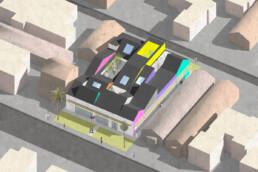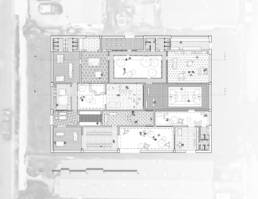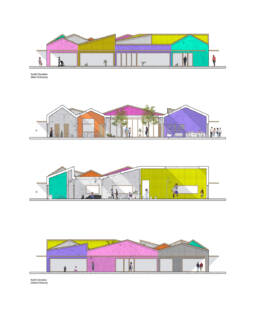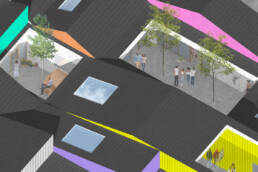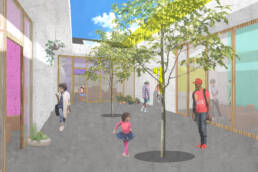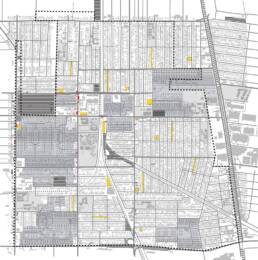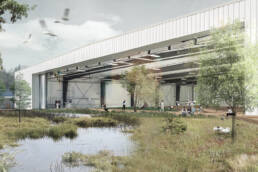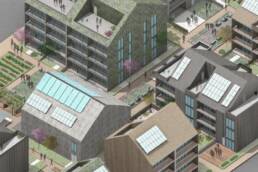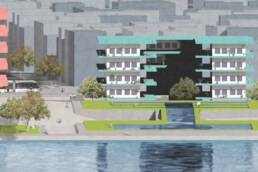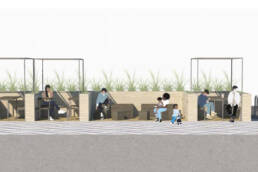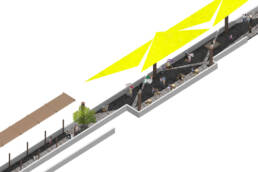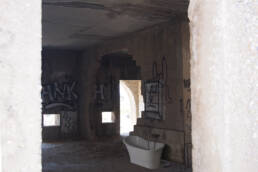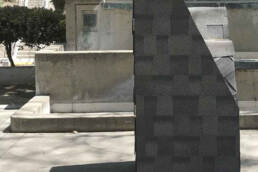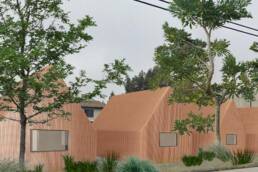
Contesting Resilience
Recent research has shown that there is a disconnect in resilience plans between cities recognizing that equity is an issue and the fact that such equities play out in space. The majority of resilience plans make explicit links between social and climate-related vulnerabilities, but without a clear link between social justice and climate change, resilience design and planning proposals are at risk of exacerbating inequalities.
Given how resilience, equity, and resilience design intersect, how do resilience designs and strategies adopted at the city level scale down? How is resilience adopted, understood, implemented, and contested at the finer scale of the community? The proposal here, in and for South LA, resulted from a series of workshops and meetings with community members who sought to contest how resilience funds were administered by planners in their communities by offering counter-designs that shaped urban climate futures on their own terms.
The proposal creates a network of public places that speaks to a more holistic understanding of resilience, and, importantly, one that addresses systemic disinvestment in this community. The goal was to design a set of public spaces that accommodate different age groups, given the multi-generational living dominant in the surrounding homes.
All spaces are open to the public and include small library spaces, tech and science rooms, lounge areas, play areas, courtyards, a basketball court, and other informal places for gathering.
The opportunity here is not only thinking about resilience as a single measure – such as mitigating extreme heat through tree planting – but as a way for urban transformations, for design, to address what residents see as larger and systemic disinvestment in community building spaces, in public space.
